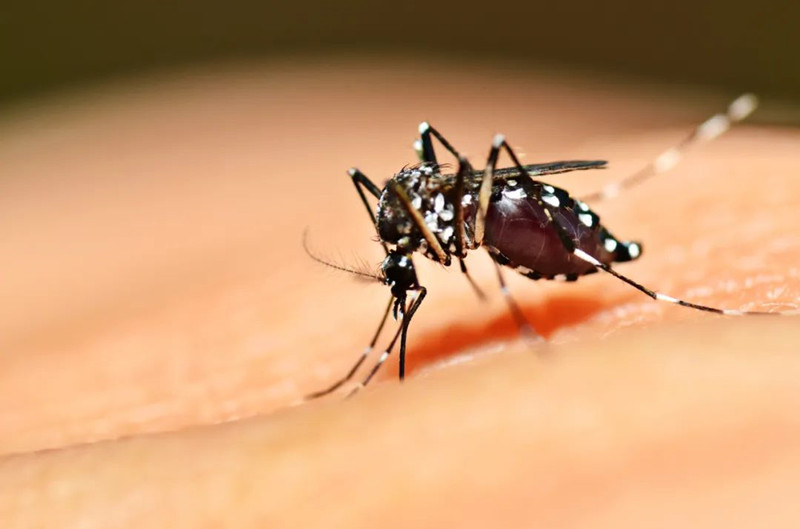The World Health Organization (WHO) has issued a worldwide alert regarding a potential public health emergency due to chikungunya fever, which has been reported in multiple countries and regions.
Domestically, as of July 26, Guangdong Province has reported 4,824 cases of chikungunya fever, including one in Shenzhen. No severe case and death case has been reported so far.
What is chikungunya fever?
When it comes to mosquito-borne diseases, dengue fever is often the first that comes to mind for most people. However, chikungunya fever is also transmitted to humans through the bite of an infected Aedes mosquito. The most common symptoms are fever and joint pain. Other symptoms may include rash, headache, muscle pain, joint swelling, nausea and vomiting. Symptoms typically appear three to seven days after being bitten by an infected mosquito.

An Aedes mosquito. Photo from WeChat official account "四川疾控"
Tips for preventing chikungunya infection
There are currently no specific medications to treat chikungunya. The best way to prevent infection is to protect yourself from mosquito bites. Vaccination is also recommended for travelers visiting tropical and subtropical areas where Aedes mosquitoes are prevalent.
1. Eliminate stagnant water to kill mosquitoes.
Mosquito larvae primarily breed in small containers of stagnant water, such as water-cultivated plant bottles, jars, pots, vases, tree holes and bamboo tubes. It’s important to clear standing water to eliminate mosquito breeding sites. It is recommended to regularly change water and clean plant containers at least once a week, and avoid leaving water in the saucers under flower pots.
2. Install screen doors, window screens and use mosquito nets in bedrooms.
3. Keep mosquito coils, electric swatters, and mosquito lamps at home for use when needed.
4. Wear long sleeves and pants, and apply mosquito repellent outdoors.
5. Avoid prolonged stays in shaded outdoor areas, grasslands and near bushes.
Treatment of chikungunya
If you develop symptoms such as fever, joint pain and rash, seek medical attention immediately. Inform your doctor about your travel history, especially any recent overseas travel trips, and mosquito exposure. Early intervention is helpful to reduce the severity of illness.
Basic care: Stay hydrated, and get plenty of rest.
Symptomatic treatment: Use fever-reducing medication when your body temperature exceed 38°C, and use painkillers to relieve joint pain. Avoid Aspirin and NSAIDs (non-steroidal anti-inflammatory drugs) as they may increase the risks of bleeding.
Don’t panic if you are infected with chikungunya; a proper response to the infection is crucial.
Individuals with upcoming overseas travel plans should stay informed about travel alerts issued by relevant government authorities, and take necessary precautions against mosquito bites.
Those returning from recent overseas trips are advised to self monitor for symptoms within 12 days of arrival. Seek immediate medical attention if symptoms develop, and follow quarantine protocols until a negative test result is confirmed.